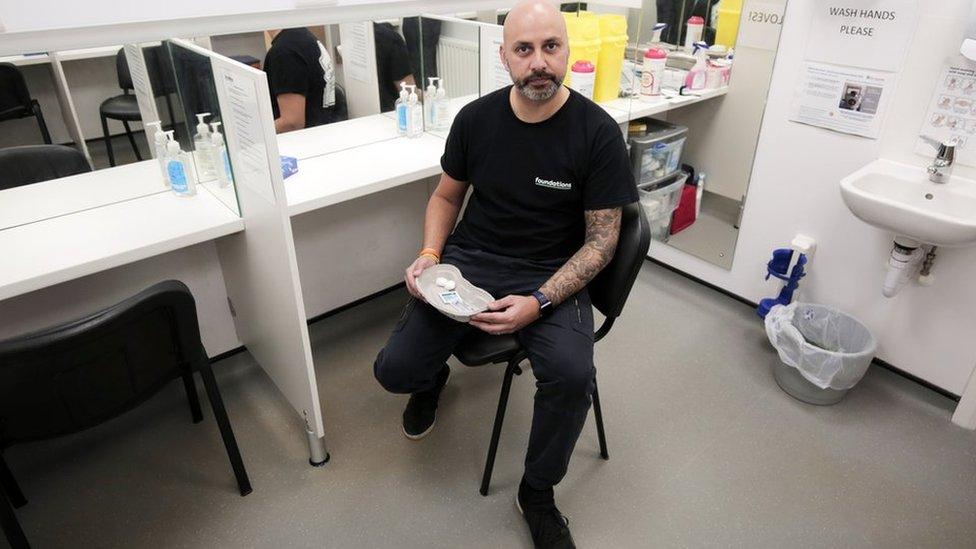Pioneering Middlesbrough heroin addiction clinic closes
- Published
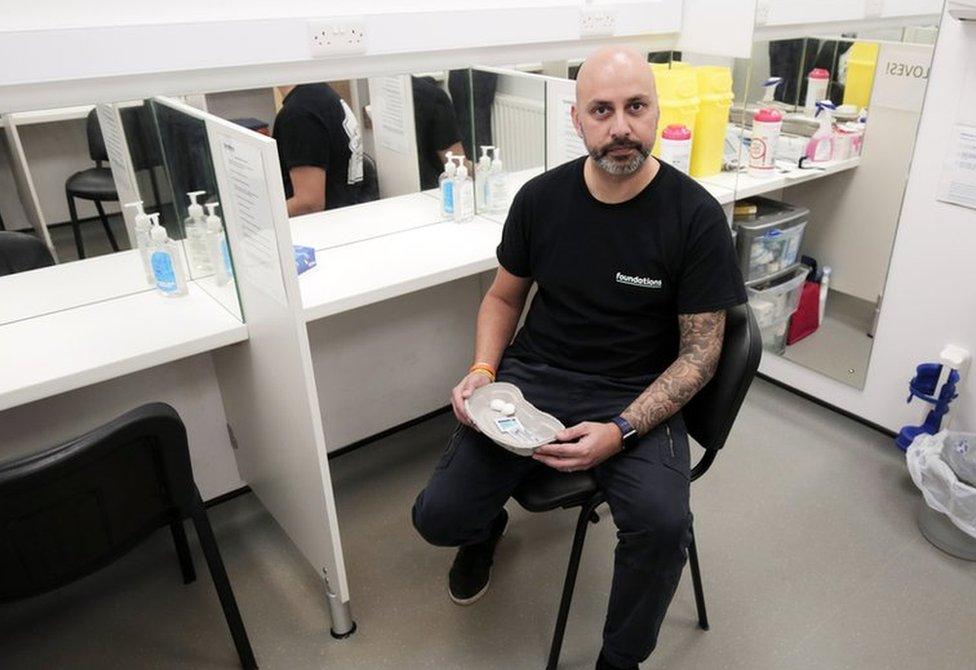
Danny Ahmed set up the Middlesbrough clinic in October 2019
A ground-breaking clinic that provided a legal heroin substitute has closed after losing its funding.
The Heroin Assisted Treatment (HAT) project, which opened in Middlesbrough three years ago, was the first to get a licence to provide addicts with the drug diamorphine.
The town's Labour MP Andy McDonald said its closure was "tragic".
The Home Office said it was important local funding decisions were made by local authorities.
Middlesbrough Council said rising costs and a fall in patient numbers had contributed to the closure.
It said funding from Home Office scheme Project Adder, external, which was designed to reduce drug-related deaths and offending, still left a significant shortfall.
HAT had originally been paid for from the budget of former Labour Cleveland Police and Crime Commissioner (PCC) Barry Coppinger but his Conservative successor Steve Turner decided not to renew the funding.
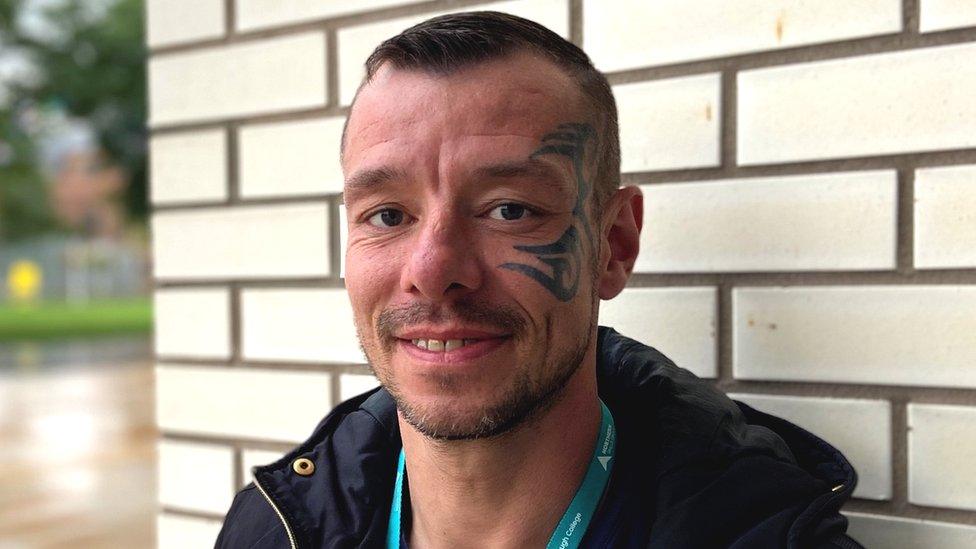
Former drug addict James Fowler was able to go to college after help from HAT
Figures for 2021, external showed England and Wales had the highest number of drug-related deaths since records began in 1993.
Of just under 5,000, approximately half involved an opiate.
The North East has the highest number of drug-related deaths with people in Middlesbrough statistically more likely to die from a drug-related death than a car accident, the council said.
The majority of people who took part in the first year of the HAT programme either completely stopped or reduced their street heroin usage and committed fewer crimes, according to an assessment by the University of Teesside, external.
James Fowler, 41, is now drug-free and studying at Middlesbrough College after being on the programme.
"On the streets you're just begging for money or shoplifting but every time you do that you're throwing a little bit of your life away," he said.
"You're constantly living in that world of pain."
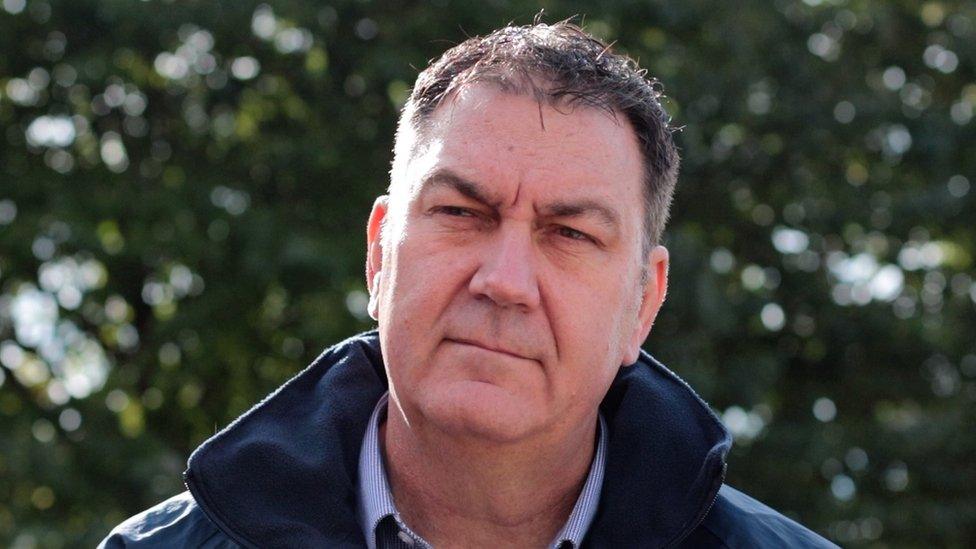
Cleveland's Police and Crime Commissioner Steve Turner failed to renew funding for the scheme last year
Dr Emily Finch, who chairs the addictions faculty at the Royal College of Psychiatrists, said HAT was an "evidence based effective treatment" for some opiate users who had to failed to respond to other forms of treatment.
Prof Toby Seddon, who specialises in drug policy and reform, said "the evidence is there" that it worked.
"This is about human suffering and we know that there are ways to alleviate it and we are not doing them," he said.
In October the Home Affairs Select Committee said the programme's closure meant "lessons that might be learned for the wider UK from this near-unique facility will be lost".
Mr McDonald described it as "utterly tragic and demoralising to the extreme".

Follow BBC North East & Cumbria on Twitter, external, Facebook, external and Instagram, external. Send your story ideas to northeastandcumbria@bbc.co.uk, external.
Related topics
- Published2 November 2022
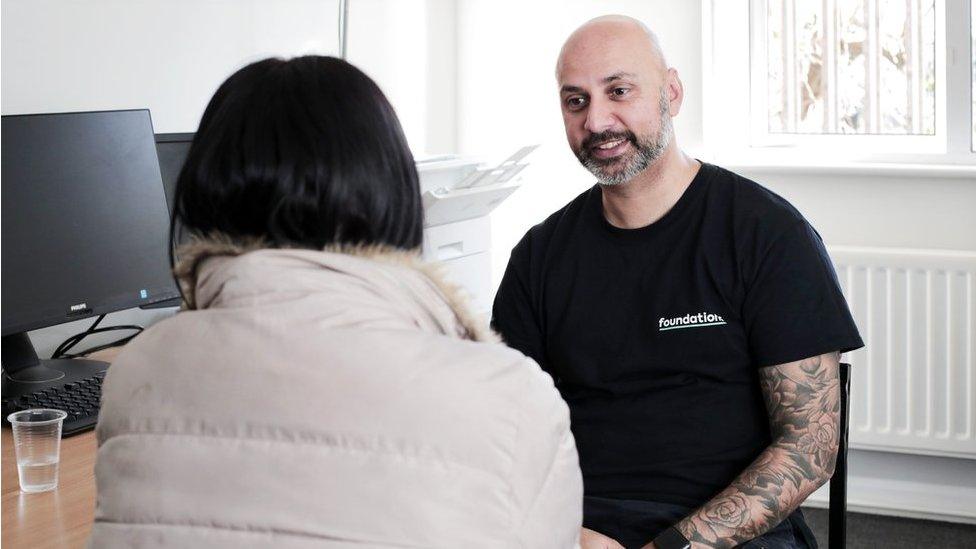
- Published29 September 2022

- Published9 December 2021
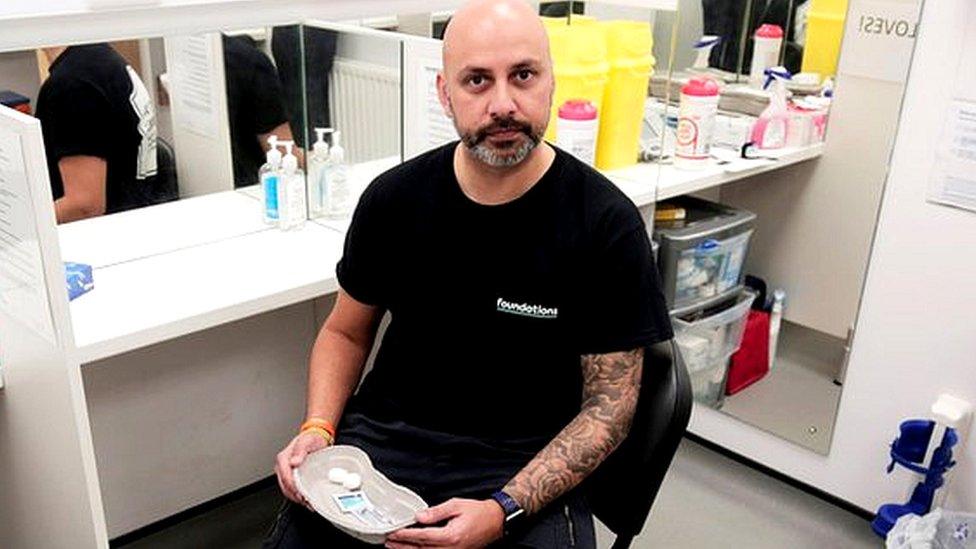
- Published7 July 2021
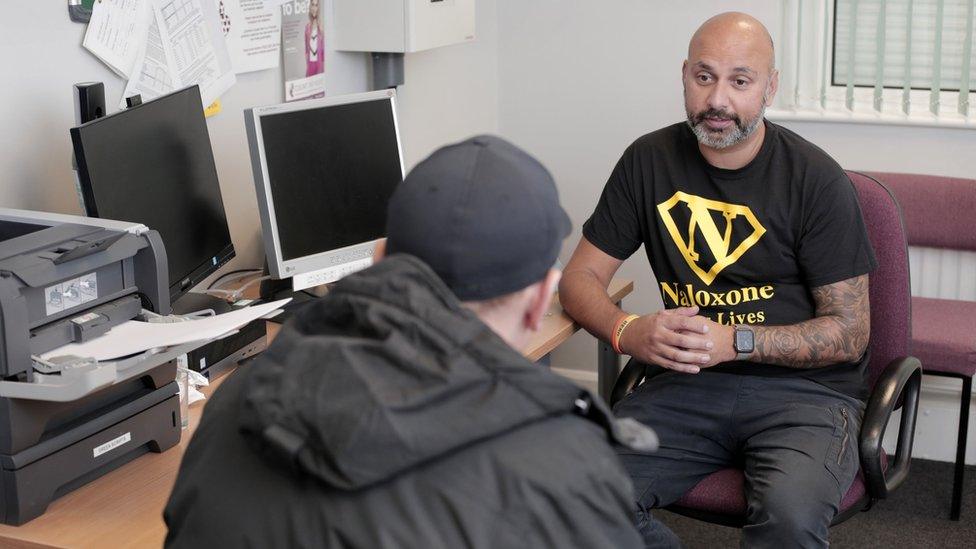
- Published24 February 2020
